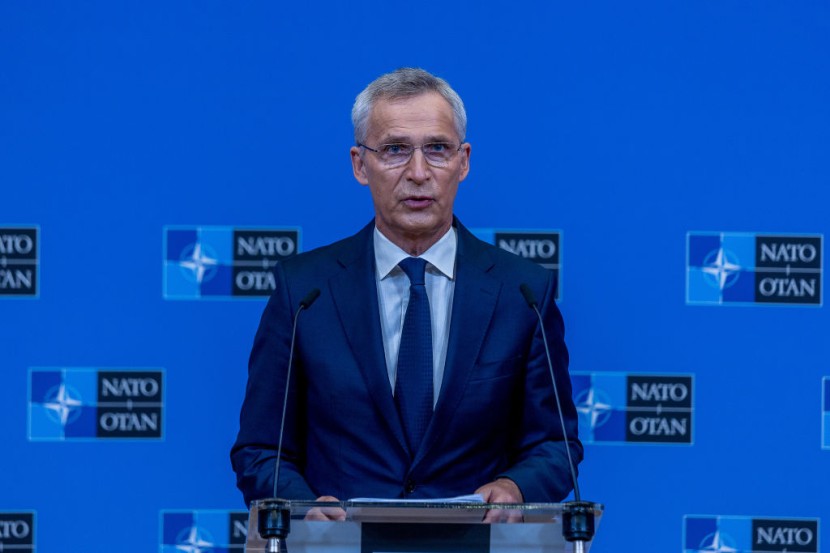
NATO has put roughly 300,000 of its troops on high alert as part of its move to increase the strength of its rapid reaction force in order to respond to Russia's threat to allied nations.
Currently, the Western alliance's reaction force consists of about 40,000 soldiers which can quickly deploy where they are needed if necessary. In combination with other measures including the deployment of forces to defend specific allies, NATO Secretary-General Jens Stoltenberg said the decision was part of the "biggest overhaul of collective defense and deterrence since the Cold War."
NATO's Increased Forces
The official said that the troops will conduct exercises together with home defense forces and will become familiar with local terrain, facilities, and new prepositioned stocks. This would allow them to respond smoothly and swiftly to any emergency.
Stoltenberg's remarks were made during a press conference ahead of a NATO summit that will be held later this week in Madrid. During the discussions, the 30 allies are expected to also agree on further support to Ukraine in its war against Russia, as per Fox News.
The NATO chief said that he was expecting allies to make clear that they consider Russia "as the most significant and direct threat to our security." In the alliance's new strategic concept, it also expected to address for the first time the security challenges posed by China, said Stoltenberg.
He added that allies will agree to deliver further military support to Ukraine when they convene in Spain as NATO members are set to adopt a "strengthened comprehensive assistance package." This would include deliveries of secure communication and anti-drone systems to support Kyiv.
According to CNBC, Stoltenberg said that the NATO Summit in Madrid this week will be "transformative" and will include many important decisions. The decision to bolster the response force follows a coordinated appeal from Russia's neighbors to shore up defenses on Europe's eastern flank.
Russia-Ukraine War
The Baltic nations of Estonia, Latvia, and Lithuania have said that Russia's war against Ukraine requires a fundamental change to the Western alliance's existing military construct. The three countries have repeatedly called on NATO to provide a substantial increase in the number of foreign troops stationed in the region.
Estonia's foreign ministry has also pushed for a "deterrence by denial" strategy which could ensure that Estonia, Latvia, and Lithuania can credibly fight to protect their territories in the event that Russia decides to invade as they wait for reinforcement from the broader alliance.
Stoltenberg, in comments on newly released defense spending figures, said that 2022 will be the eighth consecutive year of increased spending across European allies and Canada. By the end of the year, the NATO chief said that they will have invested "well over" $350 billion extra since the group's Defense Investment Pledge in 2014.
The situation comes as Stoltenberg said that Turkish President Recep Tayyip Erdogan, has agreed to meet with Swedish Prime Minister Magdalena Andersson and Finnish President Sauli Niinisto on Tuesday in Madrid to try and resolve an ongoing issue with the latter two's NATO membership applications, The Guardian reported.
Related Article:
Zelensky: Russian Troops Fire Missiles At Shopping Mall in Ukraine With 1,000 People








